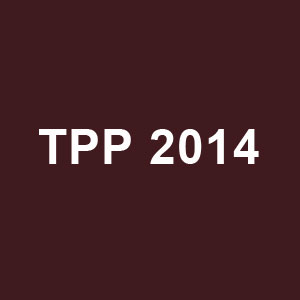Philosophies of Spectatorship after 1945
If there is a divide between philosophical approaches to theater in Anglo-American and continental thought, how does this divide mark contrasting theories of spectatorship? So large a question might organize a history of philosophical thinking about the theater since Plato. Philosophies of Spectatorship after 1945will, then, concentrate on postwar conceptions of spectatorship, considering both explicit and implicit theorizations of the spectator.
Jacques Rancière’s essay, “The Emancipated Spectator,” is, despite its opposition to critical norms in discussions of spectatorship, typical: his intervention assumes a debate in which the crucial opposing figures are Brecht and Artaud. Why does this contrast, which Denis Hollier had declared a “worn-out topos” in 1997, continue to structure discussions of spectatorship? What claims for theater does it allow? What philosophical and historical problems does it evade? The goal of this seminar is to examine other figures and forces that shape Anglo-American discussions of spectatorship. An opposition no less reductive but nevertheless useful as a heuristic pointer might describe this difference: Stein with Hollywood. This workshop will test the hypothesis that assumptions formed in reaction to mass culture shape philosophical accounts of spectatorship, and it will test the theoretical place of the concept of “presence” in Anglo-American accounts of spectatorship.
This workshop will be structured as a seminar, with selected readings made available in advance. These readings may include Stein’s essay, “Plays,” Michael Fried’s “Art and Objecthood,” and Stanley Cavell’s essays on Beckett’s Endgame and Shakespeare’s King Lear. The convener will make a short presentation at the start of the workshop, the remainder of which will be devoted to discussion.
Martin Harries works on twentieth-century theater, modernism, and theory. He is the author of numerous articles and reviews, and of two books, Forgetting Lot’s Wife: On Destructive Spectatorship (Fordham, 2007) and Scare Quotes from Shakespeare: Marx, Keynes, and the Language of Reenchantment(Stanford, 2000). He is working on a third book, “Theater after Film: Mass Culture and the Forms of Drama.” He is Professor of English and Comparative Literature, and Chair of English, at the University of California, Irvine. He taught at New York University from 2000 to 2012 and at Princeton from 1994 to 2000. He received his Ph.D. from Yale in Comparative Literature in 1995.
Duration: 40 min
Bibliography for Workshop “Philosophies of Spectatorship after 1945”
- Cavell, Stanley. “Ending the Waiting Game.” In Must We Mean What We Say?: A Book of Essays. Cambridge: Cambridge University Press, 1976.
- Fried, Michael. “Art and Objecthood.” In Art and Objecthood: Essays and Reviews. Chicago: University of Chicago Press, 1998.
- Stein, Gertrude. “Plays.” In Last Operas and Plays. Baltimore: Johns Hopkins University Press, 1995.

